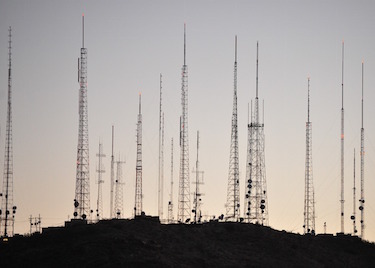The FCC Spectrum Auction
Results of the FCC spectrum auction were released in April 2017, with dozens of public media licensees earning close to $2 billion by selling their spectrum for use by wireless companies. The aftermath is still playing out, with many TV and radio stations required to move to new spectrum, and some TV stations that sold spectrum seeking to stay on the air through channel-sharing deals. Stay up to date with our ongoing coverage.
FCC delays spectrum auctions by several months, until early 2016
The FCC has postponed its auction of television broadcast spectrum to early 2016, according to a blog post on the commission website ...Appeal to protect public TV’s translators gets little traction with FCC
Pubcasters fear that hundreds of translators could be threatened by the spectrum auction planned for next year.FCC report aims to play up payout from spectrum auction
An FCC-sponsored report projecting huge potential paydays for television broadcasters in next year’s spectrum auctions could prompt public TV licensees to reconsider ...Public TV organizations ask FCC to protect noncoms when repacking spectrum
Three national public broadcasting organizations are asking the FCC to change its spectrum auction rules to ensure that channel repacking leaves no ...In historic first, LA pubTV stations agree to share spectrum for auction proceeds
Pubcasters KCETLink and KLCS in Los Angeles have agreed to participate in the upcoming FCC spectrum auction through a channel-sharing partnership that ...Private equity gobbling up public TV stations: what does the public get?
Public stations in Connecticut and San Mateo may be at the leading edge of a mass sell-off of public media assets in next year’s ...CPB eyes TV CSG rules in anticipation of spectrum auctions
CPB will review its television Community Service Grant policies to clarify how to handle station revenues from the upcoming spectrum auction. The auctions, ...Conn. network strikes deal with LocusPoint on proceeds from spectrum auction
The Connecticut Public Broadcasting Network plans to relinquish the spectrum assigned to WEDW-TV in Bridgeport, one of four stations in its statewide ...In spectrum auction, FCC should protect public TV’s coverage
The FCC recently released the entire text of its Report and Order detailing rules for the upcoming broadcast spectrum auctions, making it ...Spectrum speculator LocusPoint and KCSM licensee reach FCC auction deal
The contract paves the way for public TV station KCSM to go dark if a wireless company buys its broadcast spectrum.




